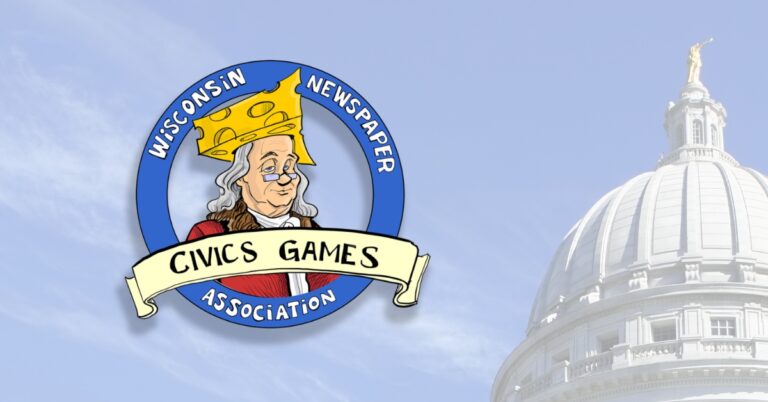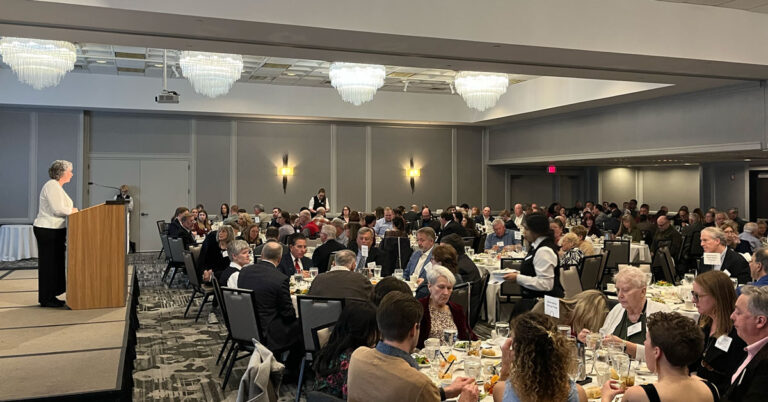The Capitol Report, produced by WisPolitics.com — a nonpartisan, Madison-based news service that specializes in coverage of government and politics — provides a weekly analysis of issues being debated in Wisconsin state government. It is underwritten by the WNA and produced exclusively for its members. WisPolitics.com President Jeff Mayers is a former editor and reporter for the Associated Press and a former political writer for the Wisconsin State Journal.
- Download column
- Download the WisPolitics.com logo
By WisPolitics.com
Lawsuits and court decisions appear to be an increasing option for those upset with state policy and the big GOP majorities in the Legislature.
The efforts to bypass the GOP-run Legislature and go to the newly liberal state Supreme Court is one big example.
Another recent example is a lawsuit from the Minocqua Brewing Company and its owner Kirk Bangstad challenging the state’s private school voucher programs and Independent Charter School Program.
Bangstad, in a fundraising email, calls the lawsuit “critical to the health of our state’s system of education, which means it’s also imminently important to Wisconsin’s kids.”
Added Bangstad: “In layman’s terms, our wildly-gerrymandered Republican legislature, through this revenue limit’ legislation, has been forcing local school districts to constantly beg taxpayers for money instead of doing what they are required to do by our state constitution…which is to ensure that every Wisconsin kid can attend an adequately funded public school.”
Attorney Brian Potts, for Bangstad, argued the revenue limits and funding for the programs violate the state’s Public Purpose Requirement and Uniform Taxation Clause.
“This parasitic funding system is pushing public school districts into an ever worsening financial crisis, which is leading to what can only be described as a funding death spiral for public education,” Potts
said.
Private school vouchers are currently funded in part through reductions in state aid that would have otherwise gone to public schools. Public schools then have the option to impose property taxes
to help make up the difference. The Milwaukee Parental Choice Program is in the process of transitioning to funding exclusively through general purpose revenue.
Fred Melms, another attorney on the case, said the current school financing system “not only fails to equitably distribute resources but also threatens the financial stability of public education in Wisconsin.”
“It’s imperative to address these issues to ensure that all students receive the support they need for a brighter future,” Melms said.
State Superintendent Jill Underly in a statement appeared to support the lawsuit, noting public education is a right under the state constitution.
“And as a right guaranteed to our children, and as an opportunity for our state to put our money where our priorities should be, Wisconsin needs to fulfill its responsibility to effectively, equitably, and
robustly fund our public education system. I welcome any opportunity to move Wisconsin in that direction,” Underly said.
But School Choice Wisconsin and the Wisconsin Institute for Law & Liberty are blasting the Minocqua Brewing Company Super PAC lawsuit. WILL announced it will seek to intervene in the lawsuit.
WILL President and General Counsel Rick Esenberg knocked the lawsuit as an effort by “Far-left interest groups” to take options away from low and middle-income students.
“If successful, their efforts would destroy a popular program that serves thousands of Wisconsin families. The arguments that it makes would call into question Wisconsin’s entire education system, throwing us all into chaos,” Esenberg said. “Their ‘facts’ in their complaint are incomplete, misleading, misinformed, and their legal arguments border on nonsense.”
School Choice Wisconsin President Nic Kelly also slammed the legal challenge.
“Efforts to kill school choice will hurt thousands of low-income families throughout the state. In Milwaukee and Racine, where four out of five choice students are Black and Hispanic, this would fall most heavily on families desperate for educational options,” Kelly said.
The lawsuit, filed on behalf of a group of seven Wisconsinites, argues the way the programs are funded violates the state constitution by requiring local school districts to spend “significantly more” per
pupil on private schools than public schools. It also targets school district revenue limits, which cap how much money a school district can levy from local taxpayers to cover aid reductions.
The lawsuit also targets independent charter schools, but would not apply to charter schools affiliated with public school districts, according to Potts and Melms.
The plaintiffs charged the Legislature with attacking public schools “under the guise of providing school choice.”
“But instead of creating a choice, the Legislature has created a cancer. And that cancer is growing rapidly, decimating Wisconsin’s public schools,” they wrote.
The Wisconsin Public Education Network praised the lawsuit, arguing choice schools take away resources from public schools.
WPEN Executive Director Heather DuBois Bourenane said it’s long past time for the state to meet its constitutional obligations to public school students.
“Children in public schools have paid the price for decades as the resources they so desperately need have been siphoned off to an unaccountable private system that plays by its own set of rules,” she
said.
Julie Underwood, lead plaintiff in the suit and a former dean of the UW-Madison School of Education, echoed the remarks.
“The voucher and independent schools have been draining resources from Wisconsin’s public schools for too long,” Underwood said. “We believe these programs are unconstitutional and hope the Wisconsin Supreme Court ends them now.”
For more go to www.wispolitics.com
The Capitol Report is written by editorial staff at WisPolitics.com, a nonpartisan, Madison-based news service that specializes in coverage of government and politics and is distributed for publication by members of the Wisconsin Newspaper Association.
Copyright © WisPolitics.com



